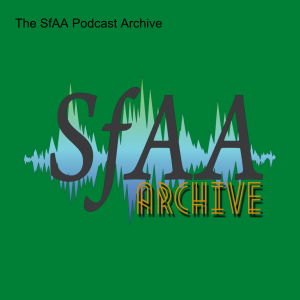
Monday Apr 28, 2025
Applying Anthropology to Forest Management in the U.S. Pacific Northwest
CHAIRS: CHARNLEY, Susan and CERVENY, Lee (USFS PNRS)
MCLAIN, Rebecca (Independent) Possibilities and Uncertainties in the Emerging Bigleaf Maple Sugaring Industry
CHARNLEY, Susan (USFS PNRS) Community Forestry in the Pacific Northwest: Addressing the “Leftovers” Problem
SIZEK, Julia, COUGHLAN, Michael, and HUBER-STEARNS, Heidi (U Oregon) Planning Under Fire: How Changing Fire Regimes Reshape Forest and Community Planning Across the Pacific Northwest
CERVENY, Lee (USFS PNRS), ARMATAS, Christopher (USFS RMRS), THOMAS, Alyssa (USFS PNRS), RANDRUP, Kristina (UW), and KAMINSKI, Abigail (USFS PNRS) Socio-Spatial Approaches to Engage the Public Around Post-Wildfire Planning in National Forests of the Pacific Northwest
ANDERSON, Robert (USFS NRS) Contested Environmentalisms: Reconciling Care, Killing, and Science in Ecological Management
The Pacific Northwest is renowned for its temperate rainforests that harbor rich biodiversity, provide numerous ecosystem services, and form an integral part of the regional identity, while being culturally diverse and growing in population. Managing forests to meet multiple social and ecological goals and interests is challenging. In recent years, the region has met with significant forces of ecological and social change, with implications for community well-being, livelihoods, resource access, local identity, and the region’s forests, including wildlife. This session illustrates how social scientists are applying their research to address a cross-section of forest management issues in the region.
MCLAIN, Rebecca (Independent) Possibilities and Uncertainties in the Emerging Bigleaf Maple Sugaring Industry. Maple sugaring is spreading from northeastern North America to the Pacific Northwest (PNW). The emerging PNW maple sugaring industry centers around bigleaf maple which occurs abundantly on small privately owned forests. This paper draws on semi-structured interviews with bigleaf maple sap producers to understand their motivations for engaging in maple sugaring, the types of resources they mobilize, and the logistical and marketing challenges they face. Our study suggests that a thriving bigleaf maple sugar industry could support ecological sustainability while enabling small-scale forest owners to reduce the livelihood risks associated with ecological and economic uncertainties brought about by climate change.
CHARNLEY, Susan (USFS PNRS) Community Forestry in the Pacific Northwest: Addressing the “Leftovers” Problem. The forest products industry, and controversy over industrial forest management, have a long history in the Pacific Northwest. Seeking control over how local forests are managed, communities have been purchasing former timber company land to establish community forests, managing them in an environmentally sound way for local community benefit. A key challenge is obtaining funding for land acquisition and operations. Community groups typically can only afford marginal or cutover forestland that others don’t want: “leftovers,” which don’t generate sufficient revenue to be financially sustainable. I explore this challenge and potential policy solutions to support community forestry in the Pacific Northwest.
SIZEK, Julia, COUGHLAN, Michael, and HUBER-STEARNS, Heidi (U Oregon) Planning Under Fire: How Changing Fire Regimes Reshape Forest and Community Planning Across the Pacific Northwest. Changing wildfire regimes are disrupting communities and surrounding forests across the Pacific Northwest, upending livelihoods, economies, and forest management plans. As summer events are cancelled, recreation-based businesses shut down, and timber sales burn before they can be harvested, both communities and land managers are faced hard decisions of how and what to prioritize in these landscapes. Drawing on case study research from the 30-year social and economic monitoring for the Northwest Forest Plan, this presentation will examine how federal agency employees and community members attempt to mitigate the disruptive impacts of wildfires through new planning processes.
CERVENY, Lee (USFS PNRS), ARMATAS, Christopher (USFS RMRS), THOMAS, Alyssa (USFS PNRS), RANDRUP, Kristina (UW), and KAMINSKI, Abigail (USFS PNRS) Socio-Spatial Approaches to Engage the Public Around Post-Wildfire Planning in National Forests of the Pacific Northwest. Over the past decade, wildfire events have increased in frequency and intensity in Pacific Northwest forests. National forest managers rely on a variety of inputs to guide plans for postfire restoration and recovery in these burned landscapes. We developed a public engagement approach using a socio-spatial tool (human ecology mapping) to identify priority sites and elicit ecosystem benefits as well as preferences for forest treatments and investments. Our presentation focuses on applications in two national forests -- the Mendocino (California) and the Willamette (Oregon). We describe the approach, share project highlights, and discuss applicability to other forest settings.
ANDERSON, Robert (USFS NRS) Contested Environmentalisms: Reconciling Care, Killing, and Science in Ecological Management. Environmental managers often grapple with the need to kill one form of nonhuman life to care for other desirable life. I examine these biopolitical tensions via multiple examples from forest restoration and wildlife management in forested ecosystems in the Pacific Northwest and across the United States. Debates over the science behind lethal ecological decisions are intertwined with questions about governmental authority and competing ideas about which non-human lives are desirable. Examining how “the science” emerges as the focal point of debates over killing of nonhuman life offers insight into how scientific knowledge is deployed and contested in American environmental politics.
- Susan Charnley, U.S. Forest Service, Pacific Northwest Research Station, Research Social Scientist
- Lee Cerveny, Pacific Northwest Research Station, USDA Forest Service, Research Social Scientist
- Rebecca McLain, National Policy Consensus Center, Portland State University, Research Program Director
- Julia Sizek, University of Oregon, Research Associate
- Robert Anderson
No comments yet. Be the first to say something!